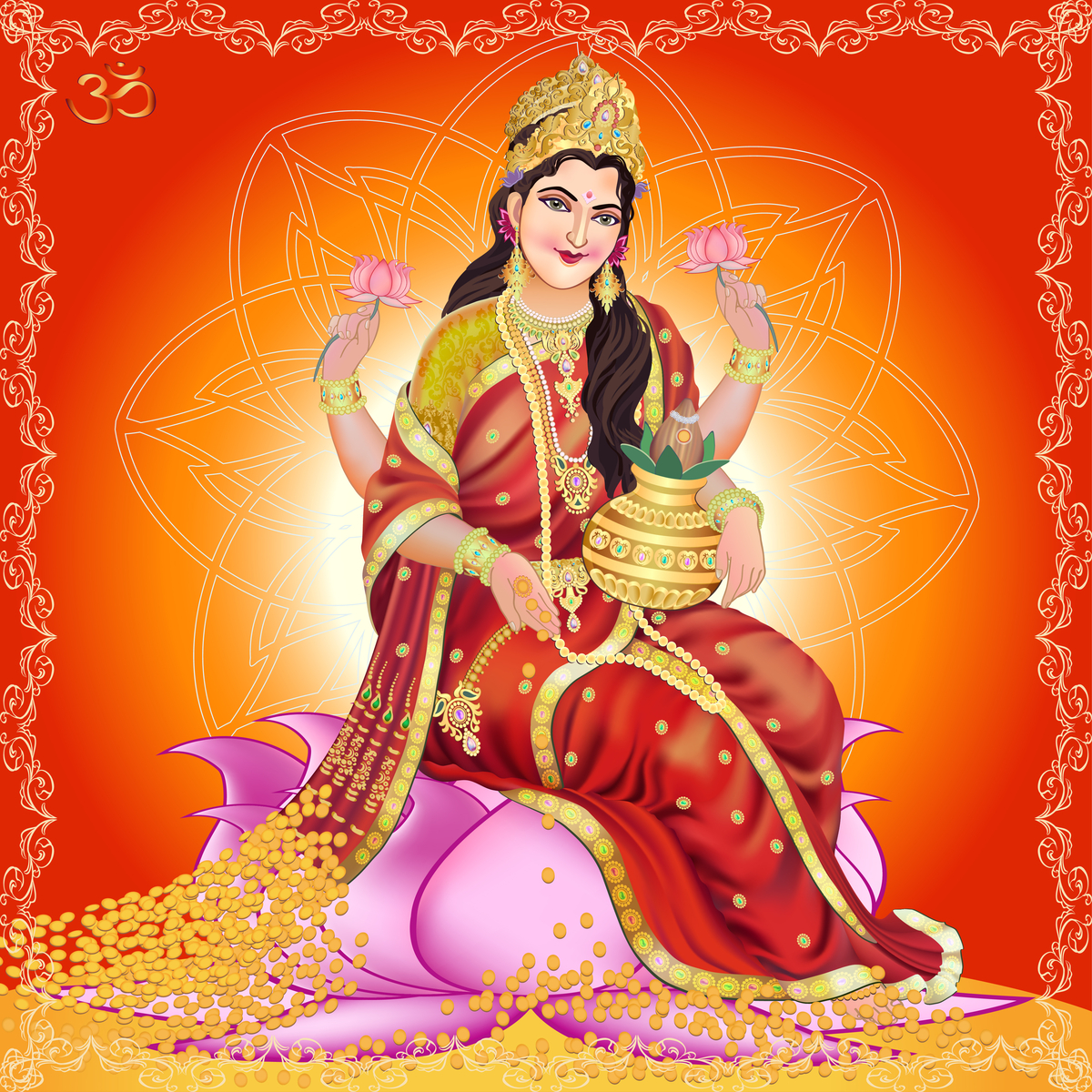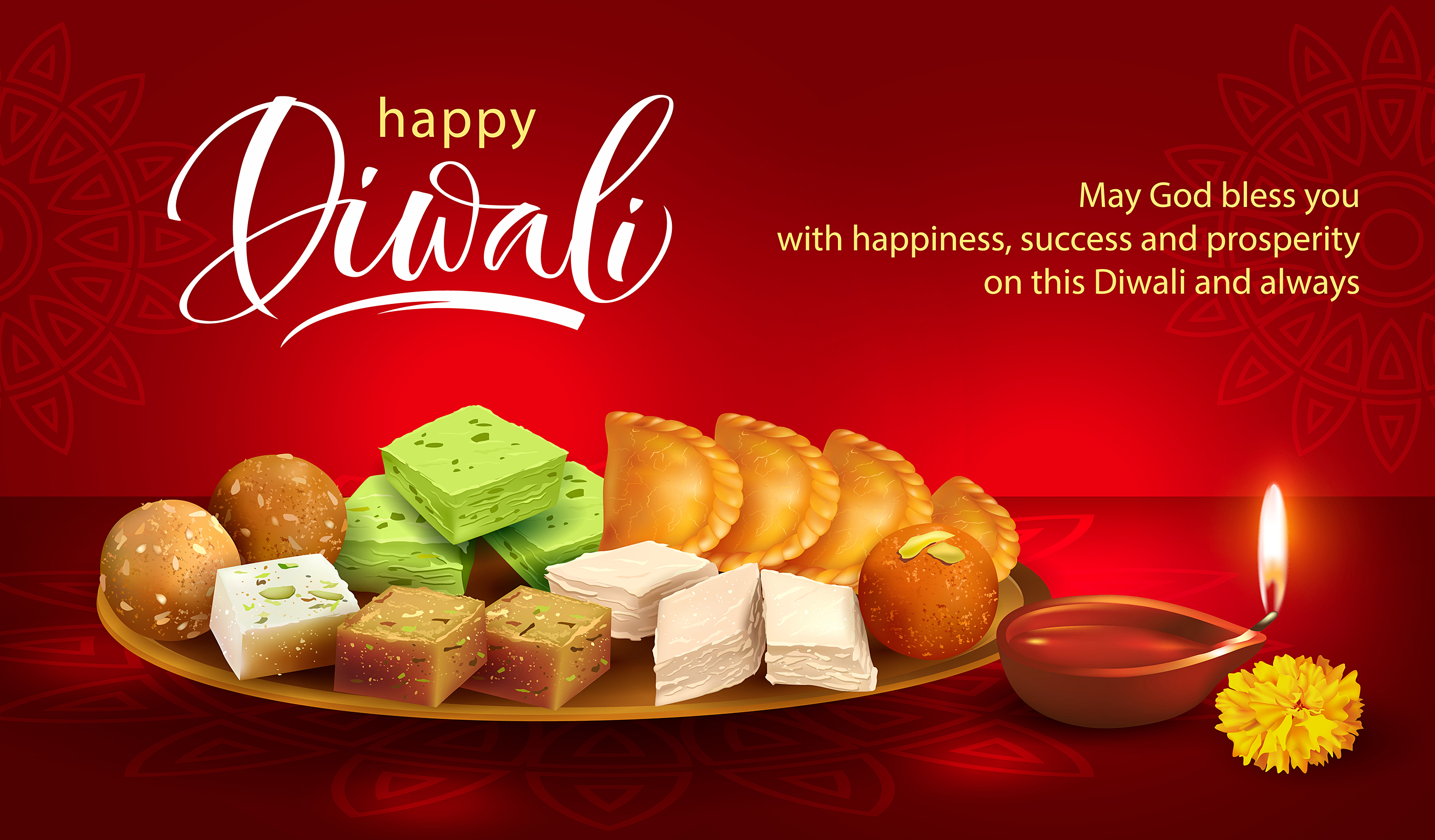Happy Deepavali!
Each year ABC Bullion and The Hindu Council of Australia come together to celebrate the Festival of Lights.
Deepavali or Diwali is the Festival of Lights and is one of the most celebrated festivals of the year. As per the Hindu Ramayana, it is a day when Lord Rama, Goddess Sita, Lakshmana, and Hanuman returned to Ayodhya after spending 14 years in forests.
Symbolising the triumph of good over evil and light over darkness, Deepavali honours the Hindu goddess of wealth Lakshmi, with lights and lamps said to welcome her and bring prosperity. Goddess Lakshmi was born on Diwali during the churning of the cosmic ocean (Samudra Manthan). Thus, Goddess Lakshmi is the most significant deity during Diwali Puja.
The festival of lights, Deepavali, begins on Dhanteras and ends on Bhaiya Dooj.
Read on to learn more about the connection between Diwali and Gold.

Gold And Diwali: What’s The Connection?
As the 2021 festive season of Diwali approaches, millions of people around the world are preparing to celebrate. The prosperous festival is known for its traditional gifts, which include brightly coloured sweet delicacies such as gulab jamuns, dry fruits and luxurious gift hampers, together with flowers and trinkets.
However, no Diwali celebration would be complete without a touch of gold – so what is its significance?
The five-day festival begins with Dhanteras, and gold plays a key role in its story. According to mythology, King Hima’s son was saved from a fate of death by snakebite thanks to a large distracting pile of gold at the family’s door. This inspired a tradition of buying gold on Dhanteras to ensure good luck.
Every year, gold sees high demand from India as the country turns to celebrate the Festival of Lights known as Diwali. Although some people like to invest for the sake of investing, the connection between gold and Diwali is now a widespread tradition, and an integral part of this holiday.
Specifically for families who identify as Hindu, Jain, Sikh, or Buddhist all celebrate the holiday and buy gold.
What is Deepavali?
Deepavali, also known as Diwali, Dipavali, or Divali, is the five-day Festival of Lights. Diwali is also India’s biggest and most crucial holiday of the year. The festivities surrounding Diwali involve clay lamps, decorating with design patterns on the floor, prayer, and buying gold.
During the holiday, most buildings are decorated with small oil lamps called diyas, and people often enjoy fireworks and sweets during the festivities. Although many celebrate the holiday, the main idea behind Diwali remains the same across the board: it is a celebration of the triumph of light over darkness before the winter brings the new year.
Many people who participate in Diwali enjoy buying gold on the first day of the festival, Dhanteras.
Hindus consider the day of Dhanteras auspicious for buying gold. Why? This is a superstition as if gold is bought on the first day, they welcome in blessings for a prosperous new year.
This tradition stems from the Hindu belief that the goddess of wealth, Lakshmi, may enter their homes when they buy gold. As a result, she blesses the family to become even wealthier later in the year.
This year, Dhanteras falls on November 2, and Diwali begins the following day. Therefore, Diwali and gold are intertwined in this ancient holiday.
Sikhs typically celebrate this holiday because it falls on the day their sixth guru, Hargobind Singh, was released from prison in 1619. While they also celebrated Diwali before this event, Diwali took on a new meaning with this event. Gold is still especially important to them because their holiest place is the Golden Temple at Amritsar. This temple is literally gilded and it was on Diwali in 1577 that they laid gold there. As a result, many Sikhs travel here during the holiday.
Finally, Jains also partake in Diwali to honour when their founder, Lord Mahavira, reached Moksha. This is also known as eternal bliss or nirvana, and it is the highest level of enlightenment for the human soul.
Lakshmi, the Hindu Goddess of Fortune and Prosperity
Lakshmi, also called Shri, is the Hindu goddess of wealth and good fortune.
Synonymous with gold, wealth, fortune, luxury and prosperity, Lakshmi has a presence in gold buying culture. The wife of Vishnu, she is said to have taken different forms to be with him in each of his incarnations.
Lakshmi is often represented in sculpture seated on a lotus, beneficently smiling, and sometimes with coins pours from her hand. She continues to be worshipped by modern Hindus, particularly in the home (every Friday) and on regular festival days throughout the year. She is greatly revered in Jainism.
The connection with gold and coins is a constant throughout history with the goddess Lakshmi frequently found in ancient coins of various Hindu kingdoms from Afghanistan to India.
Gaja Lakshmi has been found on coins of Scytho-Parthian kings Azes II and Azilises; she also appears on Shunga Empire king Jyesthamitra era coins, both dating to 1st millennium BCE. Coins from 1st through 4th century CE found in various locations in India such as Ayodhya, Mathura, Ujjain, Sanchi, Bodh Gaya, Kanauj, all feature Lakshmi.
It is believed that on Diwali night, Goddess Lakshmi visits each house to bless her devotees with great wealth and luxuries.
Diwali and its impact on international gold markets
The vast majority of India observes Deepavali, with about 800 million participants each year. Although many interpret the holiday differently, buying gold remains a staple for each family. No matter the price, almost all families buy gold. Gold is the second-largest import in India after crude oil.
Since India is the second-largest country in the world, Indian gold demand weighs on markets. In fact, seeing as India is the second-largest gold consumer after China, this demand definitely impacts the international gold markets.
Demand is so high during Deepavali that Deepavali makes up 1/5 of annual gold purchases in India! Specifically, jewellers and gold bullion dealers in India commonly report a 20-30% increase in sales leading up to Deepavali.
Reportedly, many shoppers save up to make big-ticket purchases at this time. Though this may be linked to the Indian marriage season. Although India must also account for the pandemic and celebrate accordingly, gold buying can be a relatively safe tradition. A decline in the gold spot price despite the holiday is unlikely.
ABC Bullion’s top picks for Deepavali
Some of the most popular picks for gold during Deepavali are from Australian refineries.

The ABC Bullion 1g Minted Tablet, 5g Minted Tablet, and 1oz Minted Tablet sizes, are among the most popular picks. Some clients like to buy coins during the festival however, gold bars, in general, tend to be the most collected.
ABC Bullion refines and manufactures all of its precious metals right here in Australia, at the LBMA and SGE accredited ABC Refinery, so our clients can be assured of both quality and reputation. Each of our physical gold cast bars, regardless of size, is stamped with its purity alongside our hallmark, our personal guarantee of authenticity.
The Royal Mint has just released a Henna Minted Bar in the 1g and 5g range that could prove to be very popular this year.
Buying Gold During Deepavali with ABC Bullion
ABC Bullion wishes a happy Deepavali to all who celebrate as we enter the holiday season this November. In terms of economic activity and gift-giving. It is also one of the biggest drivers of demand in the gold industry.
Gold and Diwali is a constant, therefore you should only buy from a source you trust. ABC Bullion is based in the heart of NSW with stores in Melbourne, Brisbane, and Perth.
We are more than happy to help you with your gold and Diwali needs, so come on down to our shop or peruse our online catalogue anytime. We also offer you silver, platinum and palladium products on top of buying your bullion and precious metals products.
If you’re unable to make it to one of our city locations, look through our distributor list to find a distributor of ABC Bullion product near you.







 Login
Login Create Account
Create Account